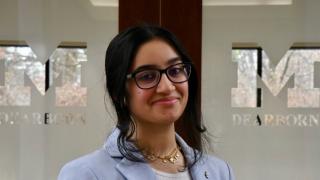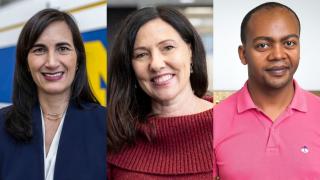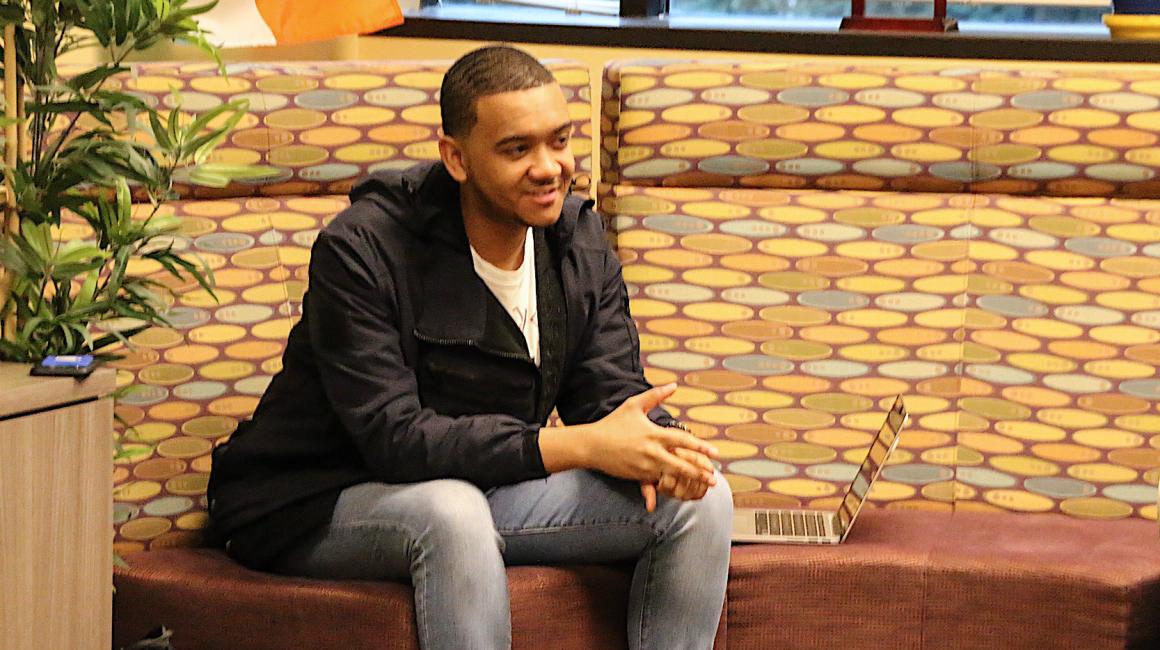
Adrian Maloy is everywhere on campus. From dawn ’til past dusk at least four days a week, the accounting and finance student travels from the Combined Services Building to the Administration Building to the University Center to Fairlane Center to the CASL Building. It’s not always in that order, of course. But, with a campus footprint like that, you may have crossed paths.
Always on the lookout for business experience, the entrepreneurial thinker constantly searches for new titles and new ways to expand his network or develop skills. If you ask Maloy, he doesn’t feel he’s doing anything overly ambitious; he’s just enjoying college. He said there’s so much here — you just need to be open risks and development opportunities.
We recently spent some time with Maloy to see how he makes the most return-on-investment throughout his day.
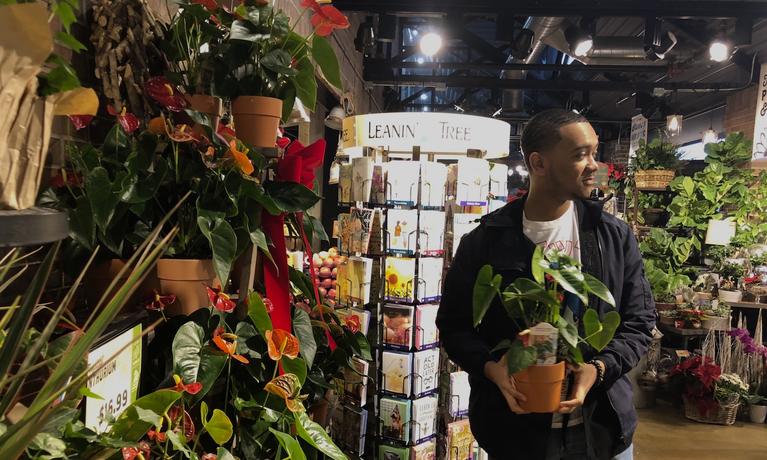
8:21 a.m. Remembering the important things at Westborn Market.
I try to get up early so I can run errands for my grandma in the mornings, like grab a few things from the grocery store or pick up her prescriptions before I go to school. Today is a little different because I’m shopping for her birthday. I try to get her flowers at least once a month, but she prefers plants. Her birthday is today, so I want to find a plant I think she’d like.
It’s important to honor and care for those who come before you. Showing appreciation is essential. It lets people know that they are valued and that they’re never too far from your mind.
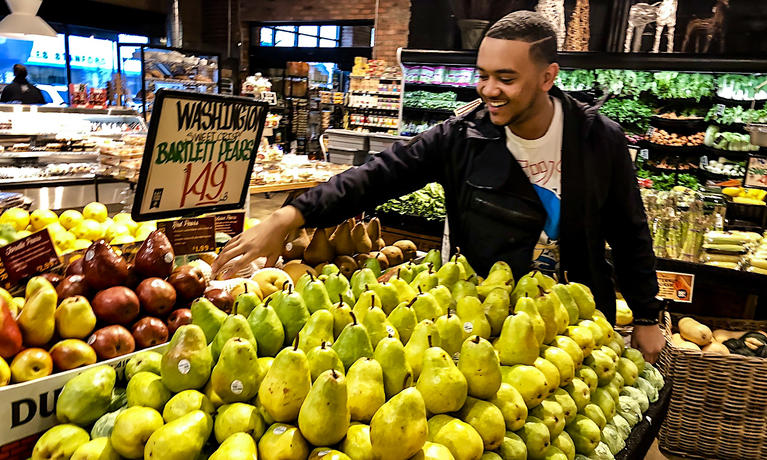
8:45 a.m. Looking for the positive during hectic times.
This morning my car was stuck behind a stalled garbage truck and I was worried about running late. It’s not my style and I feel a bit off my game. I just realized that I didn’t pack a lunch. I have my internship until 3, so I need to grab something.
Maybe it’s a sign the today’s going to be a good one after all. I realized I forgot lunch when I was still at the store. That’s a win.
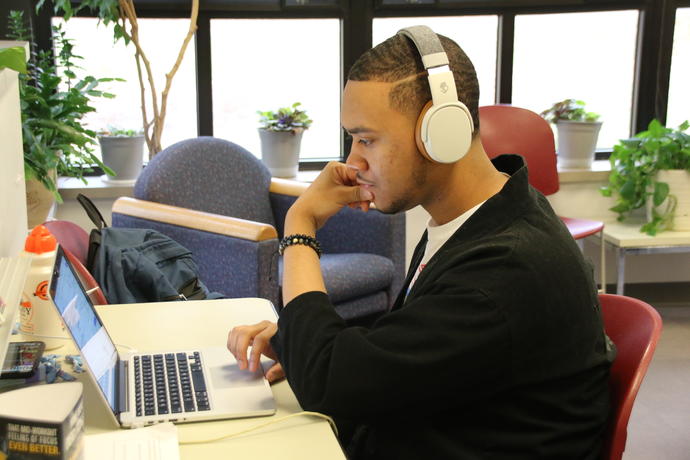
10:07 a.m. Creating a better process, developing new skills.
I’ve worked as a Business Affairs intern since January. I rotate to the different campus offices like Public Safety, Facilities Operations and the Business Affairs office. The main project I’m working on now is for Facilities Operations. It’s a dashboard project that will help with reporting — there are seven managers in Fac Ops, and my goal is to create a way for them to easily read and review user reports. The dashboard project touches on a lot of data analytics and finding the right way to visualize data so that it’s easy to read.
Sometimes numbers can look like jibberish when you don’t know what you are looking at; so I’m working to create something for the data to make sense at first glance. The work I’m doing at this internship is helping me hone in on how to briefly and concisely present information in an easily understood way. For someone who plans to work with numbers to convey financial information, that’s a good skill to learn.
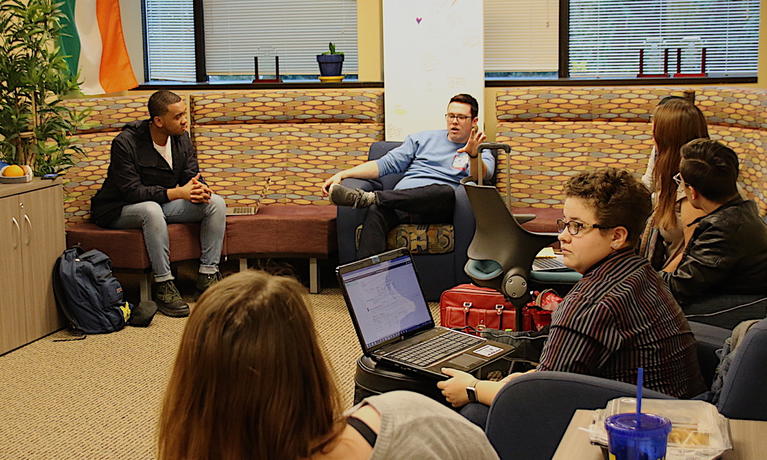
4:10 p.m. Helping others figure out this college thing.
When I saw that Counseling Services was starting a peer mentor program this year, I signed up and trained to be a facilitator. I listen in a group situation to college students who are facing emotional and mental obstacles. I wanted to do this because I know how that negative energy can take you away from your goals.
When I first got here for college, I had just gone through a breakup. We grew up together, and it was weird to not have that person there anymore. So I was in college, knowing I had a great opportunity to take, and not focusing on school. I went to counseling, they helped me through the process and I’m cool now. I’m in a good place.
I want to help other people get there too.
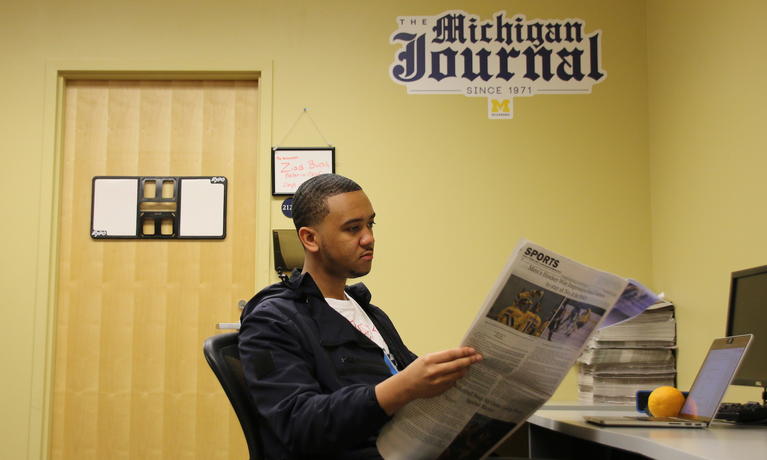
5:43 p.m. Giving ideas during a transformational time.
As business manager for the Michigan Journal student newspaper, I’ve been helping with getting us into the digital age. Last year the focus was on beginning a website; now we have one. Our goal at the Michigan Journal is to touch people’s lives and get as many eyes on the product as possible. I think a digital medium can get us there faster than paper.
Don’t worry — we aren’t getting rid of the paper version, but hear me out: The overhead cost is lower since there isn’t a physical product to create and deliver, it can always have the latest news since there isn't a cut-off time for digital, it can be shared to a larger audience and you can track the metrics. I think that would help us sell more ads, which would create a better and more profitable product. There is a market for paper and news is important, especially today. So I don’t want to come across as bashing it; I’m proud to be here. But it is important to regularly evaluate a product to make sure it matches the needs of the intended audience.
You can tell I’m the business student, can’t you?
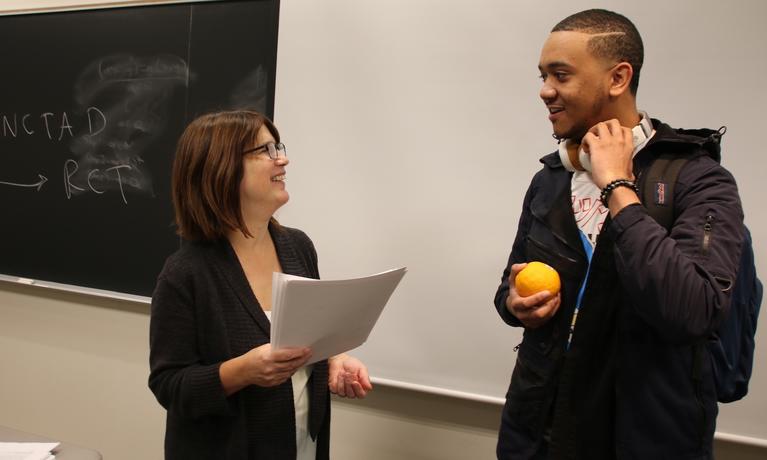
7:35 p.m. Gaining other perspectives.
When I was structuring my degree, I chose to major in accounting to explore the inner workings of business on an intimate level and finance to explore it on a broad scope. I’m also minoring in both economics to focus on trends and psychology to understand the humanistic aspect on why people react the way they do to certain things.
Professor [Suzanne] Bergeron’s Economics Development course was an elective for me, but I wanted to take it because she’s got a great reputation as an econ teacher and I want to better understand economic development from across the globe; this class has really pulled all of my academic interests together. It’s really helped me understand how development works, the options available to foster growth and how global economies interact with each other to create policy.
But the most important thing I learned is: You can’t always throw money on a problem to fix it. There are other variables at work when building economies, like the importance of human capital and investing in the institutions that broaden the skillset and knowledge of people. Money is great; but it’s not always the answer.
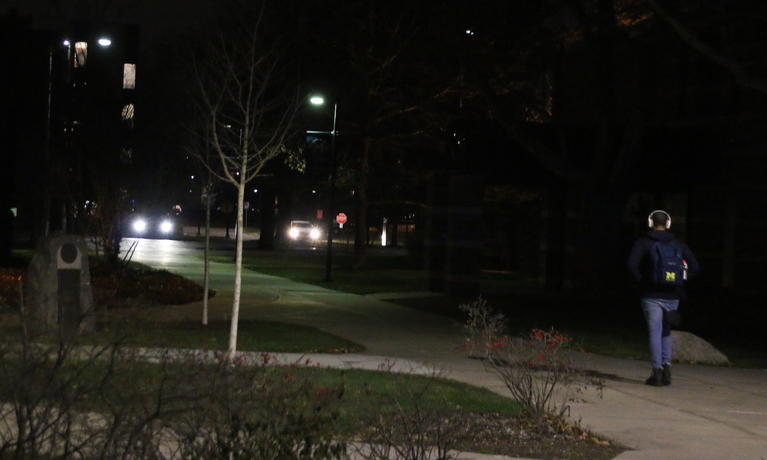
9:36 p.m. Knowing that family comes first.
Usually I stay on campus after class to study for a bit in the library. But I’ll do that tomorrow. Grandma should still be up and I want to make sure I get to see her on her birthday.

